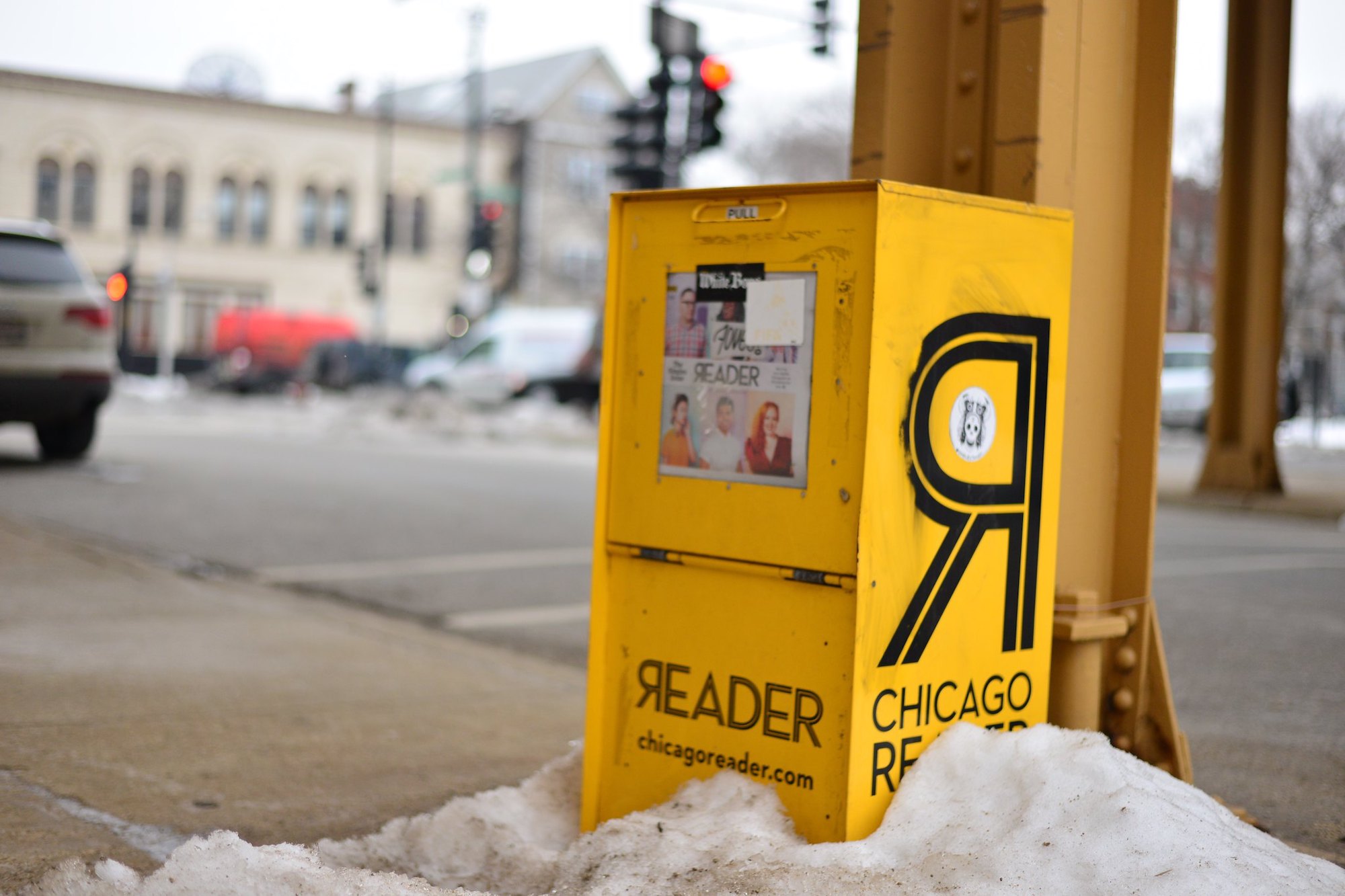
“The Reader is a beloved Chicago institution with an important history of investigative journalism and cultural reporting,” board chair Dorothy Leavell, the publisher of the Chicago Crusader and self-described “champion of minority media,” said in a statement at its purchase in 2018. “Our goal as new ownership is to preserve and strengthen this brand and to make the paper accessible to all Chicago communities.”
Now the Chicago Reader is hitching onto the train of news outlets pivoting to nonprofit life, under the umbrella of the newly-founded Reader Institute for Community Journalism, set to launch in early 2020. This follows a similar pathway of the nonprofit Lenfest Institute owning the for-profit Philadelphia Inquirer. The Reader will pursue nonprofit status, according to its announcement Wednesday morning (link added by me; Chicago media columnist Robert Feder had the news first):A new nonprofit, the Reader Institute for Community Journalism, will be launched in January and purchase the Reader from Elzie Higginbottom and Leonard Goodman, the two owners who saved the newspaper in 2018. Both owners have given extensive support to the Reader and have committed to continue their support into 2020.
The revenues for the newspaper have grown almost 50 percent since the new leadership took over in late 2018. In addition, more than 2,500 people donated more than $130,000 in a membership campaign.
Feder’s addition: “The Reader hasn’t turned a profit in ages, although revenue is said to be up almost 50 percent this year.” Publisher Tracy Baim, who joined last year, will stay on in the new arrangement with most staff.
As any regular Nieman Lab reader knows, nonprofit news has seen major growth over the past decade with a burst of startups seeking nonprofit status and more recently, legacy outlets considering nonprofit pathways like The Salt Lake Tribune’s recent approval. This opens them up for more philanthropic funding and tax-deductible donations from readers, though they must sacrifice political endorsements, among other changes.Wikipedia offers a list of 150-plus remaining alt-weeklies, but the pace of the sector’s decline has been brutal; see various eulogies already offered up by Politico, Governing, The Guardian, and more. Former alt-weekly writer Philip Eil wrote at Columbia Journalism Review in 2018:
Alt-weeklies signify much more than the ability to say “fuck” in print. They’re an extra set of eyes on legislators, local officials, and law enforcement. They’re often the ombudsman for the local media, monitoring daily newspapers and airwaves the same way government environmental agencies track water and air quality. And, in many cases, they’re an all-too-rare source of original investigative — or, at least, in-depth — reporting on a range of topics. On the culture side, each week brings a new barrage of listings, reviews, interviews, and profiles that sustain a lively community conversation about art and ideas. (The film director Ava Duvernay recently recalled how LA Weekly published “the only cover story about myself that’s ever brought me to tears.”)
But as this country seems to spiral further into dystopia, it’s the voice that I keep coming back to…. In a moment when The New York Times has a special section called “Wealth” (actual headline: “I’m Rich, and That Makes Me Anxious”) alt-weeklies remain the official papers of the vulnerable, invisible, and underserved.
Another fascinating (albeit not necessarily non-profit) alt-weekly funding move is The Devil Strip’s co-op process in Akron, Ohio:
Why are we doing this? Because we believe that community news is best equipped to serve readers when it is owned by the community. When all of you have a vested interest — literally — in The Devil Strip, we believe our journalism will be closer and more vital to the community than ever.
Readers can become shareholders for as little as $1 per month. Once you’ve invested $330, your share is fully vested and you are a shareholder for life. Shareholders will meet annually to vote on new board members, broad budget and programming questions and to select editorial projects for our journalists to prioritize.
The voices of the future of local news are yet to be determined; but the more creative the thinking, the better.